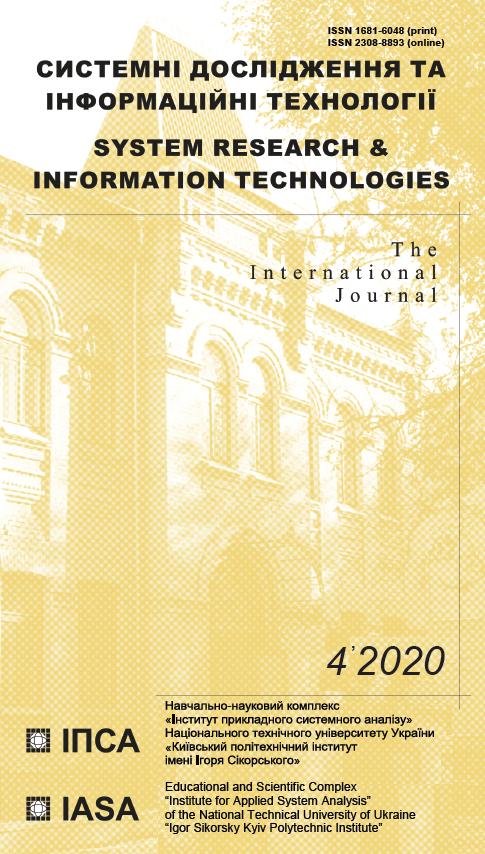Optimization of efficiency indicators of organization systems of technical operation and updating of aircraft radio-electronic systems
DOI:
https://doi.org/10.20535/SRIT.2308-8893.2020.4.09Keywords:
maintenance (update) of electronic systems, aviation electronic systems, evaluation of the effectiveness of basic optionsAbstract
This paper is dedicated to solving the problem of identifying and refining optimization indicators of operational efficiency and updating of electronic systems of aircraft, which is a pertinent metrological task. An analysis of possible options for building a system of technical operation and updating of electronic systems of aircraft was conducted. The concept of the basic variant of construction of such a system is formulated. By means of defining classification features the basic variants of construction of a system of the technical operation and updating are selected. The notion of secondary and competing types of the basic variant of construction of such a system is defined. For this purpose, classification features have been introduced that characterize the properties of products of electronic systems: the place of updating the product, the place of fixing the product failure and the availability of means of operational control in the organization of maintenance.
References
Gertsbakh, Reliability theory with applications to preventive maintenance. N.Y.: Springer Verlag, 2000, 219 p.
T. Nakagawa, “Two-unit redundant models, Stochastic Models in Reliability and Maintenance”, Springer, Issue 1, pp. 165–185, 2002.
G. Konakhovych, “Research of variants of construction of a system of technical maintenance and repair in aircraft engineering”, Bulletin of the Engineering Academy of Ukraine, Issue 1, pp. 52–56, 2012.
G. Konakhovych and I. Kozlyuk, “Optimization of Operation of Advanced Aircraft by Technical and Economic Criteria”, Problems of Informatization and Control, pp. 79–85, 2005.
Yu. Kovalenko, L. Rybalka, and M. Burlaka, “Analysis of the efficient functioning of the software in information control systems”, Measuring and Computing Engineering in Technical Processes, Issue 1, pp. 95–100, 2016.
O. Kucher and P. Vlasenko, “Comparative Analysis of Reliability and Efficiency Indicators in Foreign and National Aviation”, Knowledge-based Technology, Issue 2, pp. 11–19, 2009.
O. Kucher and P. Vlasenko, “Management of reliability of airline aircraft fleet”, Aerospace Technology and Technology, Issue 4, pp. 88–94, 2009.
J.W.S.W. Liu, Real-Time Systems, 1st edn. NJ, USA: Prentice Hall PTR, Upper Saddle River, 2000.
S. Zelenov, “Scheduling strictly periodic tasks in real time systems”, Proceedings of the Institute for System Programming of the Russian Academy of Sciences, vol. 20, pp. 113–122, 2011.
A. Tretyakov, “Automation of scheduling for periodic real-time systems”, Proceedings of the Institute for System Programming of the Russian Academy of Sciences, vol. 22, pp. 375–400, 2012. doi: 10.15514/ISPRAS-2012-22-20.
O. Kermia and Y. Sorel, “Schedulability Analysis for Non-Preemptive Tasks under Strict Periodicity Constraints”, Proceedings of the 2008 14th IEEE International Conference on Embedded and Real-Time Computing Systems and Applications, pp. 5–32, 2008.
P. Yomsi and Y. Sorel, “Schedulability Analysis for non-Necessarily Harmonic Real-Time Systems with Precedence and Strict Periodicity Constraints using the Exact Number of Preemptions and no Idle Time”, Proceedings of the 4th Multidisciplinary International Scheduling Conference, MISTA’09, Dublin, Ireland, August, 2009.
A. Zykov, Fundamentals of graph theory. Moskow: University book, 2004.

